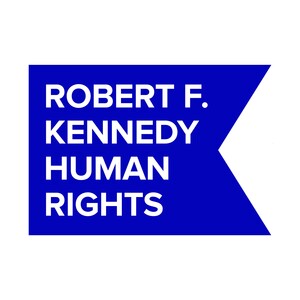
NEW YORK, Oct. 6, 2021 /PRNewswire/ -- Robert F. Kennedy Human Rights today launched its Workplace Dignity program, a new initiative that reimagines how people should be valued and treated at work.
Building on Robert Kennedy's legacy of human rights advocacy, Workplace Dignity creates a new understanding of the workplace and equips organizations and their leaders with the strategies and tools that allow all workers to truly thrive, no matter the work they do or where they do it.
This approach extends from day-to-day leadership to structural interventions that affect the entire work experience—from recruiting, communications, and data transparency to compensation, benefits, and beyond. The recommended actions are proven to strengthen employees' trust in the organization, foster team building and retention, and increase productivity.
The program, supported in part by a generous grant from the Tramuto Foundation, is among the first to center dignity—the inherent value and worth we all share—as an overarching workplace driver. Moving beyond compliance-first approaches, it maps out actions for change across an organization's culture, systems, and practices, as well as through the behavior modeled by its leaders. These efforts will drive change in the workplace by providing organizations, leaders, and individual contributors with actionable tools and content, as well as a range of future initiatives.
Offering specific strategies, Workplace Dignity aims to close the perception gap between what an organization believes about its work environment and what employees actually experience.
"The workplace has often been a setting ripe for human rights violations, from labor abuses and economic inequality to racial injustice and exclusion, and the pandemic has only further complicated matters," said Kerry Kennedy, president of Robert F. Kennedy Human Rights. "Our new Workplace Dignity program addresses these issues by offering strategies and helping organizations and leaders take real action to achieve powerful, positive outcomes that make a difference in the lives of all employees."
As with other RFK Human Rights programs, Workplace Dignity will stand with those closest to the issues, giving voice to the dignity champions and advocates who highlight opportunities and challenges across different workplace types, and to the workers who are uniquely vulnerable to inequitable treatment.
Through the program, RFK Human Rights will also support legislation that advances workplace dignity and speak out against legislation that seeks to diminish it, and will create workplace dignity through-lines with other RFK Human Rights programs, which focus on schools, investors, the work experience of college students, the job opportunities of those with criminal records, and more.
"Human rights don't end at the workplace door," said Jeffrey Siminoff, senior vice president of the Workplace Dignity program at Robert F. Kennedy Human Rights. "Organizations that honor the dignity of their workers, as individuals and human beings, are more engaging, more equitable, and ultimately more successful. We hope our new program will provide concrete action that drives change and prompt wider discussion on how each of us can more intentionally center the dignity of those in our workplaces."
Learn more about RFK Human Rights and its vision for Workplace Dignity by visiting RFKHumanRights.org/Workplace-Dignity.
Robert F. Kennedy Human Rights
We are a nonpartisan, not-for-profit organization that has worked to realize Robert F. Kennedy's dream of a more just and peaceful world since 1968. In partnership with local activists, we advocate for key human rights issues—championing changemakers and pursuing strategic litigation at home and around the world. And to ensure change that lasts, we foster a social-good approach to business and investment and educate millions of students about human rights and social justice.
SOURCE Robert F. Kennedy Human Rights






Share this article